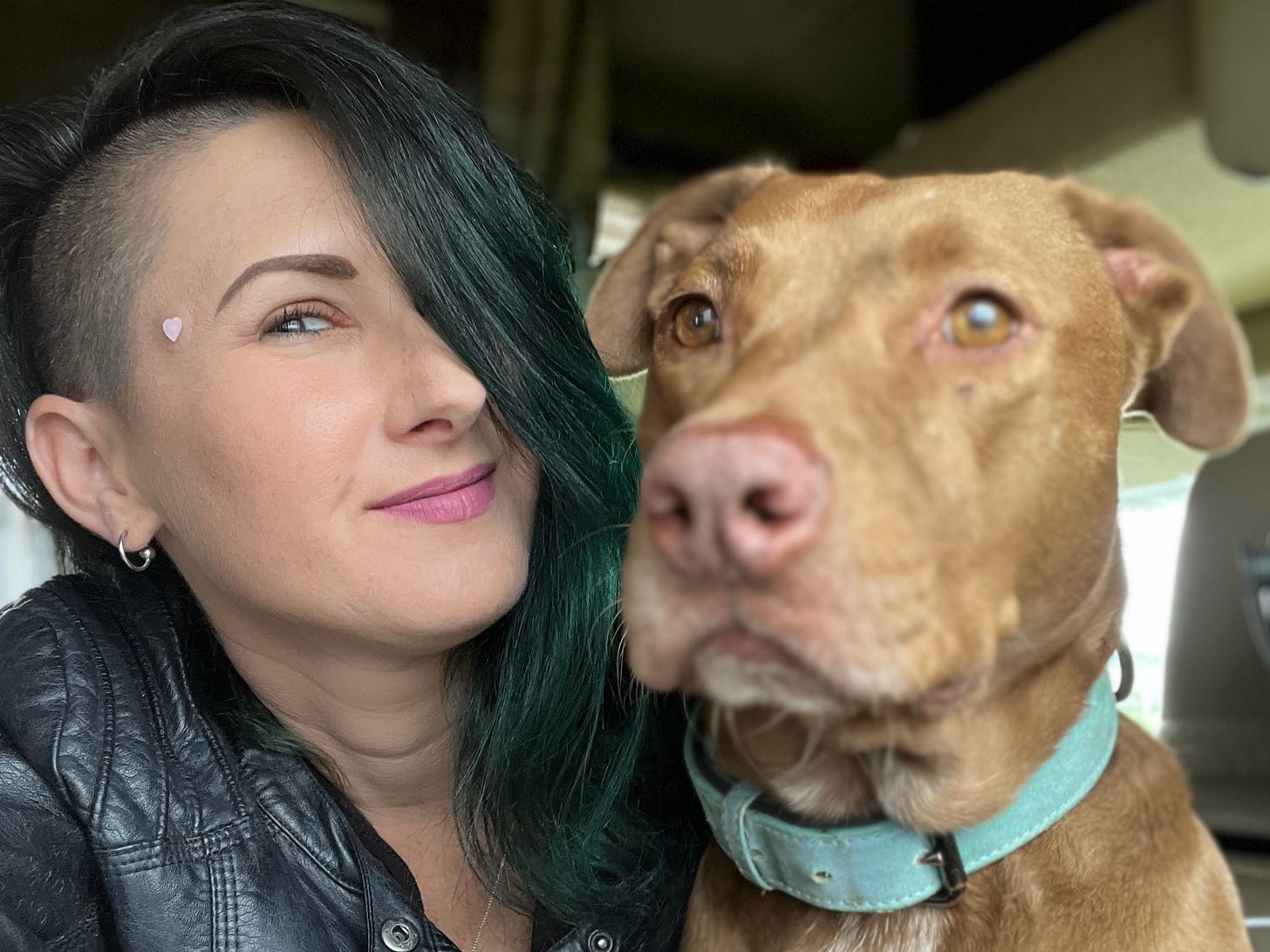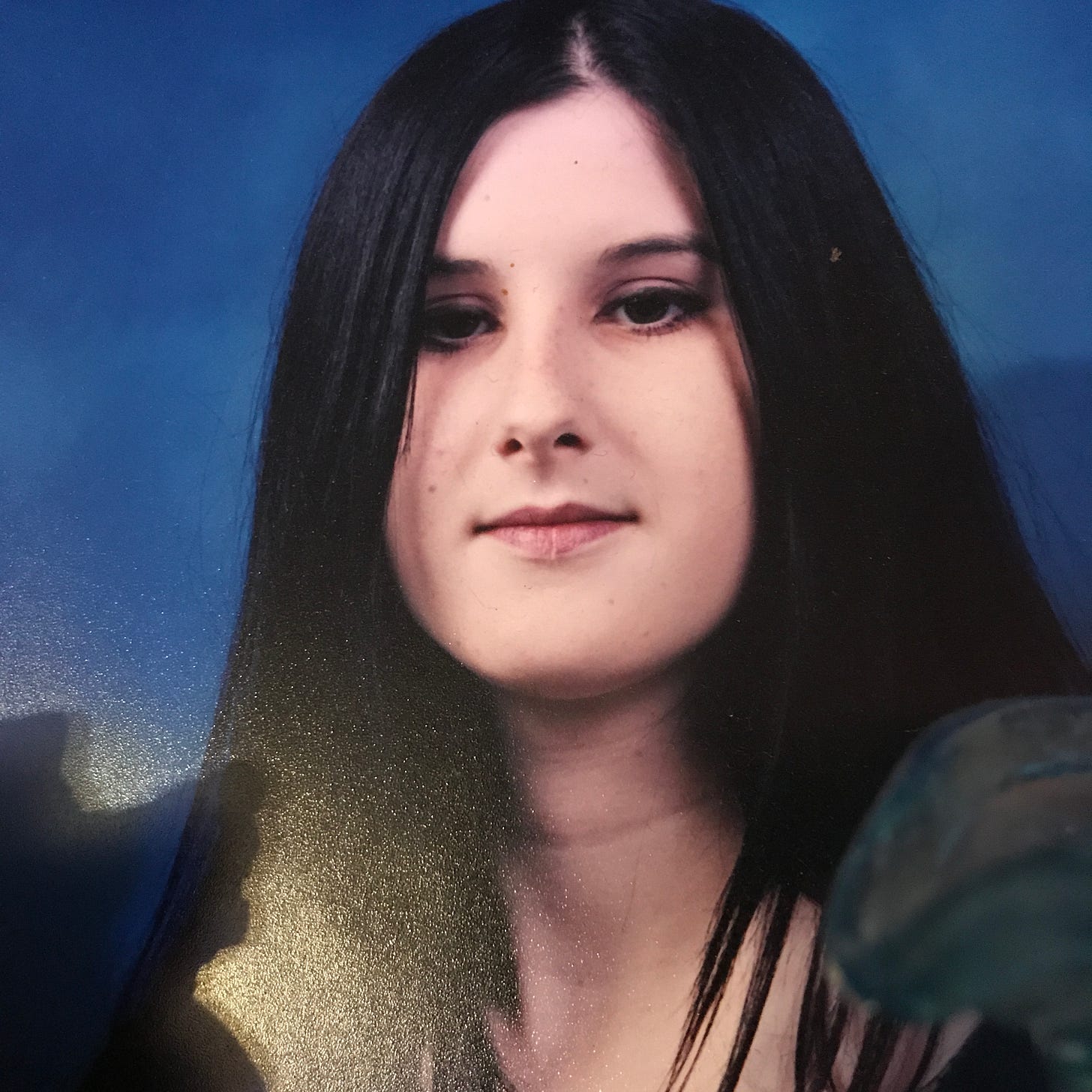Almost Missed: Late Diagnosed - How Learning I am Autistic at the Age of 29 Saved My Life
The Hidden Truth: How Adult Autism Diagnosis and Identification Can Transform Mental Health. The Life-Changing Impact of learning you are Autistic in adulthood.

My name is Lyric Rivera. My pronouns are they/them, and I'm an adult who happens to be both Autistic and ADHD. These are two of my NeuroTypes or brain types. I have many, though I don't share them all.
My life before my Autism Discovery was one of quiet desperation, stuck in a world that didn't understand me.
People didn't understand and misunderstood me. Similarly, before learning the truth, I was unable to understand myself (because I thought I was something I was not - NeuroTypical).
I was Autistic (and ADHD), but I didn't know it yet, trapped in a cycle of self-doubt and confusion, trying to fit into a society that saw me as broken or wrong, punishing, scolding, mocking, and even physically harming me when I expressed NeuroDivergent traits. Because I had a way of rubbing people the wrong way without realizing I was doing it – or even what people were so upset about.
I was just trying to survive, to get by, to be someone I thought others wanted me to be -who I was supposed to be (someone I was never meant or wanted to be).
Not knowing this truth for the first part of my life had devastating impacts on me in that (before I knew the truth) I was constantly comparing myself to, and holding myself to, NeuroTypical standards. I was also continually burning out and making myself physically & mentally ill.
When you think you are NeuroTypical but you struggle with things that other NeuroTypical people find easy, those ways in which you struggle (or you feel you would don't measure up -because people around you are constantly telling you that you don't measure up) can become magnified.
All I could see were my weaknesses, and I couldn't even appreciate my strengths until I found out I was Autistic. I started to heal from that trauma and learn to love myself again.
I was diagnosed Autistic during a time of mental health crisis, triggered by the extended periods I found myself spending in a very unhealthy environment.
After months of tests, examinations, diet changes, and questionnaires, my doctor was out of answers as to why I was so sick, wasting away in front of her, so she referred me for a mental health assessment.
"It might be anxiety," she said, "physically, everything is normal, so I would like to refer you to talk to someone about an anxiety evaluation."
Apparently, she thought my problems were "all in my head" – she had NO idea.
I remember being tugged by a gentle but insistent voice that reminded me of something I'd stumbled across months earlier while reading a book about animal behavior – Autism.
"If you're going to refer me to a head doctor, can I at least see someone who knows about Autism, too? I would like to rule that out, if possible," I asked her.
"Sure," she said, handing over a small white business card with contact information that would forever change my life, "but I don't think you're Autistic."
"Who knows," I shrugged, "I just want to know. Can't hurt, right?" I asked.
"Can't hurt." She agreed.
Days later, I found myself sitting at home alone, rhythmically twirling that business card in my hand, working up the courage to make a phone call after finding myself confused by the resources I had found on the card's website (because it seemed like almost all of them were for parents with Autistic children, not adults trying to get help for themselves).
Was I wasting my time and money?
My GP had not thought I was Autistic, and she'd seen me a lot over the past six months (trying to figure out why my health was declining).
What did she know, though?
I never felt like she was listening to me, and she had repeatedly given me bad suggestions that I TOLD her wouldn't work for me, but she wanted me to "try it anyway" (making my health even worse).
Then there was the fact that adult Autism screenings are NOT cheap, and I wasn't sure if my insurance would cover it.
Spoiler – this type of service was only covered for minors because my provider did not see it as necessary for me since I was almost 30 (and there were no services they could offer me as an adult under that diagnosis).
Beyond time and money, I was also afraid - afraid of what this diagnosis would mean and of losing the person I thought I was (when I did not know who I was).
While I was scared of what I might learn about myself in my first-ever mental health assessment (that I am aware of), I was more afraid of what would happen to my health if I didn't get to the root of what was happening to me (either at my own hand or from illness), so I gave in, picking up the phone and dialing the number that was typed in dark blue text on the card in my trembling hand.
Several weeks later, I found myself sitting in a quiet, sensory-friendly office. It was relaxing, unlike any medical office I had ever been in.
The psychologist (who specialized in Autism and anxiety) was sweet, soft-spoken, and kind. She asked me about my experiences and why I thought I might be Autistic.
My assessment was in two parts.
First, the doctor listened patiently as I shared my experiences and filled out forms.
Then, in our second meeting, after speaking to me (and people who knew me growing up), watching my baby videos, and reviewing all the data that came from the various forms I had filled out in our initial meeting, she compiled a 14-page report and was ready to share her findings with me.
Six months before my 30th birthday, in the fall of 2016, after a lifetime of not knowing my true self, I was finally fortunate enough to learn the truth about my brain - that I am and always have been Autistic.
My Autism diagnosis shook me, turning my worldview upside down. Suddenly, I saw myself (and everyone around me) with fresh eyes; however, everyone else saw me (and themselves) the same way.
The psychologist who diagnosed me was a wise and understanding guide who saw me for who I truly was (even when I could not see myself). She also did me one more favor as I found myself at a fork in the road.
I was at the beginning of a self-discovery journey, trying to find myself again after losing my true self to an out-of-reach neuro-normative ideal.
When people first learn they (or a loved one) are Autistic, they sometimes find themselves choosing between two extreme paths (as I did).
It would have been easy, had I stumbled down the wrong path to fall back into the denial of my Autistic self again (had I been steered towards Autism stereotypes I don't fit) like the first time I'd considered that I might be Autistic, and then quickly dismissed it months prior.
I could have easily ended up on the "Autism sucks and is always bad" path. Still, instead, I was steered by this good doctor (who recommended resources that were affirming fertilizer for my newly sprouted Autistic identity) to the path of embracing being Autistic fully.
With their guidance, I began to see the world in a new light through radical self-acceptance (daring to love the parts of myself I had been systemically taught to be ashamed of).
I remember the moment I choose to cross the threshold, leaving behind the familiar comfort of denial and uncertainty. I took a deep breath, and with a newfound sense of courage, I stepped into the unknown (deciding to be openly and unapologetically authentically Autistic-ally me), leaving NeuroTypical ideals behind.
Paid subscribers have access to more of this post. Thanks to every one of you for supporting my work.
Keep reading with a 7-day free trial
Subscribe to NeuroDivergent Rebel’s Substack to keep reading this post and get 7 days of free access to the full post archives.





